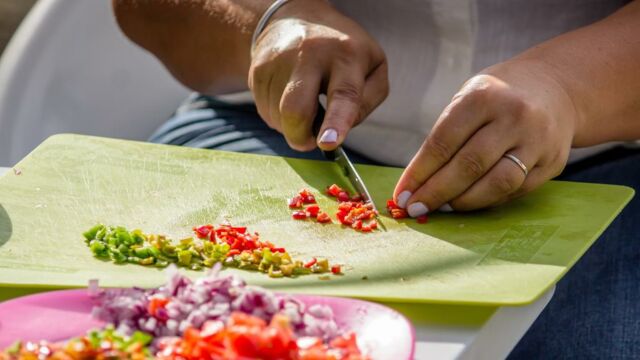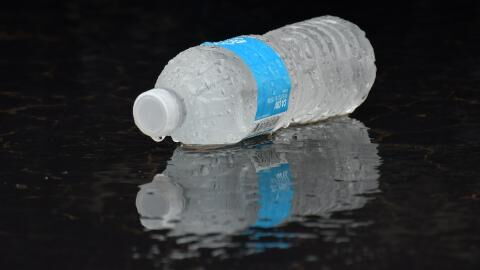It's actually shockingly easy to be make a lot of kitchen hygiene mistakes. In fact, not many people know that the dirtiest part of your kitchen is actually not the trash. Or that, you need to watch your kitchen sponge to avoid health risks.
Discover our latest podcast
Now, as reported by The Kitchn, a new study has come up with some very disturbing finding related to your plastic cutting board. Yes, that innocuous looking thing most of us have, just lying on our kitchen counter!
The dangers lurking in plastic cutting board
In a paper published in the academic journal, Ecotoxicology and Public Health, researchers have found thatplastic cutting boards are a potentially significant source of microplastics in human food.
Microplastics are fragments of any type of plastic less than 5 mm (0.20 in) in length, according to the U.S. National Oceanic and Atmospheric Administration (NOAA) and the European Chemicals Agency.
For the study, scientists evaluated the exposure of humans to microplastics while using different types of cutting board, by chopping carrots.

The observation found that plastic cutting boards resulted in 1,114 microplastic particles (pieces of plastic less than 5 millimeters long) on the carrots each time the board was used.
The study inferred that this translates to 15 milligrams of microplastics per cut, and around 50 grams a year. This microplastics consumptions roughly equals 10 plastic credit cards.
The problem with microplastics
As reported by National Geographic, microplastics have been found to be very harmful to our environment, especially to our oceans and aquatic life.
As per The Kitchn, when it comes to the actual risks posed by microplastics to human health, the data is still not very robust. The reported quotes Alex LeBeau, PhD,MPH, CIH, a toxicologist and certified industrial hygienist who explains,
The presence of the plastics under limited simulated conditions identifies them as a potential exposure source, but it is unclear if they are a human health hazard or pose any risk to consumers.
From clothing to water bottles, to cosmetics and food, it seems that microplastics have invaded and permeated human lives. So while swapping out your plastic cutting boards might be something you feel necessary, it seems that ingesting microplastics cannot be completely avoided by humans.
Read more:
⋙ Here's how to use boiling water to make your kitchen squeaky clean
⋙ People are shocked to realise why the kitchen sink is always below the window
⋙ People horrified after learning where Parmesan cheese actually comes from
Sources used:
The Kitchn: ' People Are Ditching Their Plastic Cutting Boards Because of a New (Disturbing) Study'
Ecotoxicology and Public Health: ' Cutting Boards: An Overlooked Source of Microplastics in Human Food?'
National Geographic: ' Microplastics'















